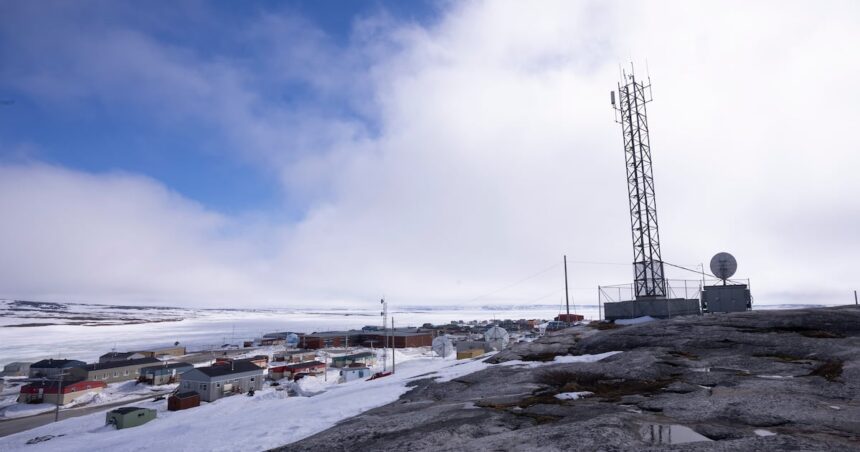Article – Rocks scraped from a remote Quebec shoreline have quietly rewritten Earth’s geological story, with scientists confirming they date back 4.28 billion years—making them the oldest known rocks on our planet.
The discovery along the eastern shores of Hudson Bay wasn’t the work of a dramatic expedition, but rather the patient analysis of geologist Jonathan O’Neil from the University of Ottawa and his research team. They’ve spent years studying the ancient Nuvvuagittuq greenstone belt, where these primordial formations have weathered countless millennia.
“These rocks were forming when Earth was barely 300 million years old,” O’Neil explained during a community presentation in nearby Inukjuak last month. “We’re talking about rocks that solidified when our planet was still cooling from its initial formation.”
The previous record-holders, discovered in Northwest Territories in 2008, were dated at approximately 4.03 billion years old. This new Quebec finding pushes our understanding of Earth’s oldest preserved crust back an additional 250 million years—a massive leap in geological timescales.
What makes these Quebec rocks particularly significant is how they formed during what scientists call the Hadean Eon, Earth’s earliest and most violent period. Most rock from this era was recycled back into the planet’s mantle through tectonic activity, making these preserved samples extraordinarily rare windows into our planet’s infancy.
Richard Carlson, director of the Carnegie Institution’s Department of Terrestrial Magnetism and co-author of the study, notes the rocks contain evidence of early volcanic activity and primitive oceanic crust formation. “We’re essentially looking at the building blocks of our continent,” Carlson said in a phone interview. “These formations tell us how Earth began assembling itself.”
The dating process itself presented unique challenges. Traditional radiometric dating using uranium-lead decay wasn’t possible because these ancient rocks have undergone too many transformations. Instead, researchers relied on measuring the decay of samarium-146, an isotope that disappeared from our solar system within the first 500 million years after its formation.
Local Inuit communities have long recognized the unique character of these rock formations. Elder Simon Inukpuk from Inukjuak shared that the area has always been considered special. “Our ancestors spoke of these stones as being from the time before time,” Inukpuk remarked during consultation meetings with the research team. “Science is now confirming what our traditional knowledge has preserved.”
The discovery also provides essential context for understanding Earth’s earliest environments. Analysis suggests these rocks formed when our planet was still cooling, with an atmosphere devoid of oxygen and constant meteor bombardment reshaping the surface. This hostile environment predates the earliest evidence of life by hundreds of millions of years.
Quebec’s Minister of Natural Resources, Maïté Blanchette Vézina, highlighted the discovery’s significance during a provincial science funding announcement. “Quebec has always been known for its rich geological resources, but to now host the oldest known rocks on Earth adds an entirely new dimension to our natural heritage,” she said.
For perspective, when these rocks were forming, Earth itself was only about 300 million years old—a mere infant in cosmic terms. The sun was still in its early stages, and none of the familiar continents existed. The planet was a churning, molten world slowly developing the features that would eventually support life.
McGill University geochemist Don Francis, who wasn’t involved in the research but has studied the region extensively, called the discovery “transformative” for understanding Earth’s formation. “We’ve always had theories about Earth’s early crustal development, but these rocks provide tangible evidence we can actually hold in our hands.”
The research team has carefully preserved core samples at the University of Ottawa’s Advanced Research Complex, where further analysis continues. They’re particularly interested in understanding how these ancient rocks might contain chemical signatures that explain how Earth developed conditions suitable for life.
O’Neil emphasizes that this discovery belongs not just to the scientific community but to all Canadians, particularly the Indigenous communities who have been stewards of this land for generations. “This isn’t just Quebec’s oldest rock—it’s humanity’s oldest tangible piece of planetary history,” he said.
For everyday Canadians, the discovery offers a profound connection to our planet’s deepest history. When we stand on Canadian soil, we’re standing on the oldest preserved piece of Earth’s crust—a distinction that reminds us of our country’s ancient geological foundations.
As research continues, these ancient Quebec rocks may yet reveal more secrets about how our planet transformed from a molten inferno into the life-supporting world we know today.






